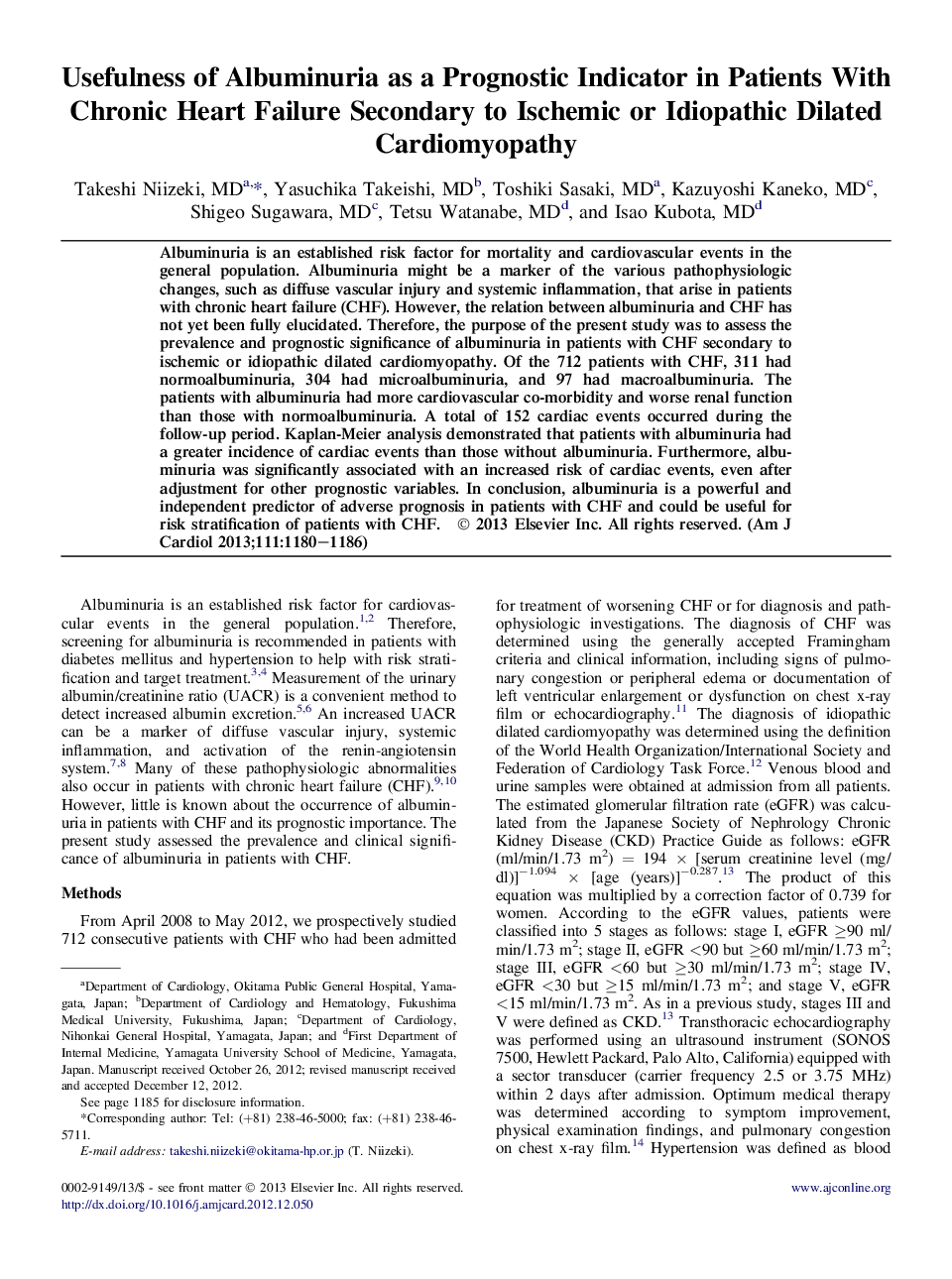| Article ID | Journal | Published Year | Pages | File Type |
|---|---|---|---|---|
| 5931270 | The American Journal of Cardiology | 2013 | 7 Pages |
Albuminuria is an established risk factor for mortality and cardiovascular events in the general population. Albuminuria might be a marker of the various pathophysiologic changes, such as diffuse vascular injury and systemic inflammation, that arise in patients with chronic heart failure (CHF). However, the relation between albuminuria and CHF has not yet been fully elucidated. Therefore, the purpose of the present study was to assess the prevalence and prognostic significance of albuminuria in patients with CHF secondary to ischemic or idiopathic dilated cardiomyopathy. Of the 712 patients with CHF, 311 had normoalbuminuria, 304 had microalbuminuria, and 97 had macroalbuminuria. The patients with albuminuria had more cardiovascular co-morbidity and worse renal function than those with normoalbuminuria. A total of 152 cardiac events occurred during the follow-up period. Kaplan-Meier analysis demonstrated that patients with albuminuria had a greater incidence of cardiac events than those without albuminuria. Furthermore, albuminuria was significantly associated with an increased risk of cardiac events, even after adjustment for other prognostic variables. In conclusion, albuminuria is a powerful and independent predictor of adverse prognosis in patients with CHF and could be useful for risk stratification of patients with CHF.
